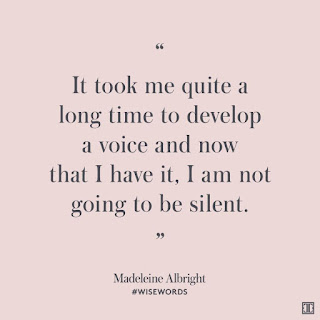Detached Families, Disconnected Relationships, and Distracted Students: 4 Non-Negotiable Steps To Reclaim Them!
Recently, I had the opportunity to speak to the staff of a comprehensive high school in Southern California about Screen Dependence. Because it is also a boarding school, I was able to connect with the academic faculty as well as the home-living staff. For three hours, we covered a lot of material: cyber bullying, screen dependence, and the growing health concerns within each. We also discussed several strategies and interventions for moving forward. Although I presented a research-based workshop, I was also mindful of involving the audience in several interactive exercises in order for the material to connect with them. I was hoping they would welcome the participation. Wow! I was warmed by their honesty and involvement, and I felt the heaviness in their voices as they described their experiences with....
For more information on how to raise healthy Screen Kids, take a listen to a recent podcast with educators and hosts Dan Kenley and Ed Berger. We discuss the different kinds of parenting and how to make those difficult shifts when everyone else is attached to their screens!
Detached Families, Disconnected Relationships, and Distracted Students.
 |
| Alone together |
Over the past decade, I have had the privilege to present to many incredible audiences. After asking attendees to silence their phones, almost everyone will. However, many will also continue to text,read emails, play games or go to their social media sites, etc. A few months ago, I watched a Simon Sinek talk on this very subject. So, I did the following.
At the beginning of the second part of the workshop on Screen Dependence, I put up a new slide on the power point. It said:
At the beginning of the second part of the workshop on Screen Dependence, I put up a new slide on the power point. It said:
* Please silence your cell phones.
* Please put your phones away (out of your vision) or....
* If you are willing, please place your phone in the basket.
My husband walked up to the audience with a basket in his hands for folks who were willing to "check their phones" until the end of the workshop. It was so interesting! A few immediately stepped forward to put their phones in the basket. Then more did so. Then more! Within a few minutes, we had a large basket filled with phones! The audience laughed! They enjoyed it!
I spent a few minutes talking to them about how they felt about departing with their phones!? Some of their responses astounded me!
I'm glad to get rid of it. I'm so tired of people not paying attention at meetings!
I didn't even bring mine. I keep mine locked up all day!
It's a relief to let go of it! It's a distraction!
The other reason I did this exercise (besides wanting to establish a new norm) is because, as I shared with the audience, there are two important reminders for changing behavior:
1. We want to experience what it is we will be asking of our students (or of family, staff, etc.)
2. We MUST model the behavior we are going to ask them to change!
I must admit. I had a little anxiety over doing this exercise, but I was pleased with how receptive everyone was. More importantly, I had a good pulse on how the audience was connecting with the difficult information I was about to impart.
I continued with the workshop and introduced another exercise. I asked them to do the following.
1. Think about yourself and your family, friends, or students and how screen time has affected or impacted the relationship.
2. Make two columns: positives and negatives.
3. Write down two examples for each one.
4. If you feel comfortable, please share your responses with the group when we are ready to do so.
During the workshop, folks shared the positives: connecting with family in distant places; getting a hold of children at school, or for pick-ups, activities, etc.; being able to connect with someone at any time, especially if it was important; sending reminders to students for bus times, games, etc.
Then, folks shared the negatives: feeling isolated from family members because of lack of involvement with technology; children not wanting to pay attention or follow through with chores because of screen attachment; both children and adults not listening to one another or communicating well; the constant battle in classrooms over the use of phones and the inability for students to put their phones away for even short periods of time; students staying up all night on their phones, exhausted and unable to stay awake during school let alone pay attention to their academics.
 |
| "Irresistible" by Adam Alter |
Again, I so appreciated their honesty and openness. I listened. I told them I understood. I've heard these concerns many times. After the workshop, several individuals wanted to talk with me more privately. Their stories were serious: relationships within families not only detached but destroyed; parents frightened at their children's and grandchildren's addiction to their technology; and teachers on the brink of total frustration over the constant battle with cell phone usage as well as the battle for their attention. Although the day was productive, my heart was heavy.
As a Marriage and Family Therapist, I know that change is hard. And yes, it is a process. I typically work at presenting my material in an informative and restorative fashion. However, after yesterday, I realize it's time to get down to business. Children, families, and relationships are hurting. My new book Power Down & Parent Up: Cyber Bullying, Screen Dependence and Raising Tech-Healthy Children was just released (July 2017). I hope you will get a copy and start implementing the strategies within your family. It is only about 50 pages. There is a clear road map to reducing screen time and getting your family back in balance. For now, I want to leave you with the following:
4 Non-Negotiable Steps To Reclaim Them!
Take a deep breath!
1. No screens whatsoever in bedrooms. This includes adults. None!
* This is a recommendation from the American Academy of Pediatrics. (2013)
2. All screens are shut off two hours before bedtime, for everyone! If needed, collect phones, iPads, etc., and put them in a locked place. Spend time with one another, face to face, really connecting. Your children need you! So do your spouse, partner, friends, and family!!
3. Take another deep breath.... Students should not have access to their phones in classrooms! There are a variety of ways this can be dealt with and there is research validating how excessive screen time is damaging students cognitive development and executive functioning.
Although there needs to be consistency within an organization, a few exceptions may include:
* Students may need phones for calculations in science and math.
* Students may need phones for research.
* At the same time, teachers must be able to implement a "no use" policy in their classrooms.
4. For families, this is important. Every family must have a Family Online Safety Agreement or your own family Internet agreement. I have been talking about this for 10 years. I explain it fully in Power Down & Parent Up. By implementing a family agreement, you will bypass years of arguments and confusion over tech usage. More importantly, you will have safer and healthier children. It works!
I just came across a wonderful tool - Family Media Plan - sponsored by the American Academy of Pediatrics. You can customize a family plan for all your children given their different ages! It's super easy and allows you to add to their recommendations!
I just came across a wonderful tool - Family Media Plan - sponsored by the American Academy of Pediatrics. You can customize a family plan for all your children given their different ages! It's super easy and allows you to add to their recommendations!
I know this is a lot to take in. I want you to know my motivation is simple - I care about the health and well being of your children, your family, your relationships, and of you. And, I'm here to help.
For more information on how to raise healthy Screen Kids, take a listen to a recent podcast with educators and hosts Dan Kenley and Ed Berger. We discuss the different kinds of parenting and how to make those difficult shifts when everyone else is attached to their screens!
For more information or to contact me for a workshop or presentation, please visit
Holli Kenley.
Holli Kenley.
 |
| Real power means being informed! |


Comments
Post a Comment